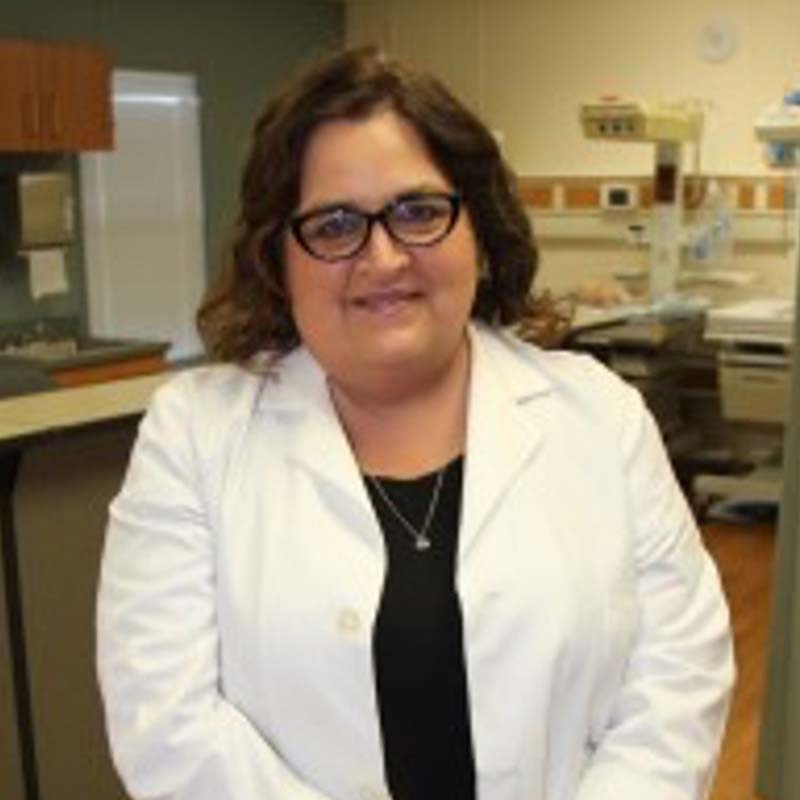Assessing and Evaluating Competence Through the Curriculum
58:35
Watch On-demand Webinar Now
Interested in learning why and how to transform your teaching approach through embracing competency-based education? Featuring key leaders from three nursing schools:
The panel discussion will provide insight into their personal experience and provide examples such as:
After the webinar, we asked our panelists for some additional insights. Hear what they have to say about the importance of data in nursing education as well as some tips to get started.

Rosemary Samia, MSN, RN, CNS, CHSE, is the director of the Center for Clinical Education & Research at the University of Massachusetts Boston. Her clinical background includes 15 years in medical-surgical nursing before transitioning to teaching with simulation in the academic setting in 2014. In 2020, she completed the National League for Nursing’s year-long Leadership Development Program for Simulation Educators. Rosemary facilitates a local networking group for simulation educators in the greater Boston area and assists with the development and organization of regional simulation symposiums. She serves on the advisory board for safeMedicate, a virtual environment for simulated medication administration. In 2020, Rosemary was recognized by Sigma Theta Alpha for Excellence in Nursing Practice and was the recipient of the Maureen Oh Eigartaigh award.

Christopher Garrison, PhD, RN, CNE, CHSE, is an Associate Teaching Professor in the Ross and Carol Nese College of Nursing at the Pennsylvania State University and the Director of the Simulation Laboratory at the University Park campus. His clinical background includes experiences in medical-surgical, cardiology, home health, and as an adult/gerontological nurse practitioner. He is a Certified Nurse Educator (CNE) and a Certified Healthcare Simulation Educator (CHSE). Christopher holds an Associate’s degree from Northern Virginia Community College, a BS degree from the Pennsylvania State University, an MSN from George Mason University, and a PhD from Nova Southeastern University in Nursing Education. He teaches in classroom, simulation, and clinical settings across the curriculum in the BSN program at Penn State. In 2020, Christopher received the Janet A. Williamson Excellence in Teaching Award from the Penn State College of Nursing. He has 13 years of experience in designing and delivering simulation-based learning. His research interests include evaluating the effectiveness of simulation and virtual simulation as an educational strategy. Christopher has presented at national and international conferences on simulation and other nursing education topics.

Jennifer Roye, MSN, RN, CHSE, CNE is The Assistant Dean for Simulation and Technology and a Clinical Assistant Professor at the University of Texas at Arlington College of Nursing and Health Innovation. She is lead faculty for the Fundamental Telehealth Skills course in the Health Informatics Certificate Program. Mrs. Roye received her MSN from UTA in 2003 and is currently enrolled at The University of Alabama in the EdD Instructional Leadership program. She practiced as a CPNP in private practice for 10 years and as an RN in the Emergency Department at Cook Children’s Medical Center in Ft. Worth, Texas for 16 years. Her areas of research interest include simulation, telehealth, student engagement, enhancing online education, and moral distress in the undergraduate nursing student population.

Leverage one, easy-to-use system that captures simulation activities, automatically generates reports and trends, and simplifies simulation operations. SimCapture will help you turn simulation data into insights and show measurable program improvements.

Øv på den modulære ferdighetstreneren, hvor som helst, når som helst
Kombiner SimCapture for Skills med den modulære ferdighetstreneren for å få en dynamisk læringsopplevelse. Den bærbare treneren er utviklet for sykepleierutdanning og inkluderer 16 viktige ferdigheter. Med egenopptak og peer-to-peer-sjekkliste kan studentene øve på viktige psykomotoriske ferdigheter.